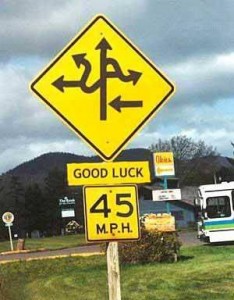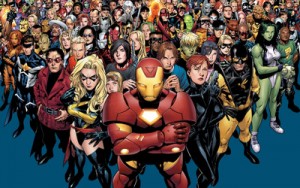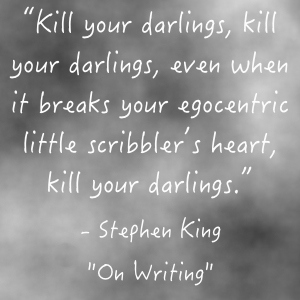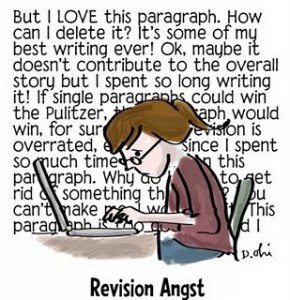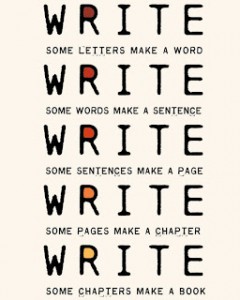It’s been a while, but I’ve decided to continue the series of posts about my favorite protagonists. You can read my post about Severus Snape, The Doctor, Sephiroth and Raymond Reddington.
Today, I want to talk about another protagonist I love dearly – Yuna from Final Fantasy X. And no, I will not mention Final Fantasy X-2, even though I played it. For me, the story was finished with the ending of Final Fantasy X, and that’s how it will stay.
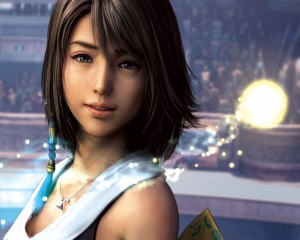
Now, those of you who played this game might object and say that Tidus is the real protagonist of FFX, not Yuna. I beg to differ. Yes, it’s very much Tidus’s story and we discover the world of Spira through his eyes. But it’s also Yuna’s story, because everything Tidus does revolves around her quest to defeat Sin and bring the much needed Calm to Spira. Everywhere she goes, he follows. She calls the shots in this journey.
I must admit that Yuna is one of my favorite characters, because she is so unlike what is usually considered a kickass heroine. She is not a fighter, for one. She specializes on healing and support magic, letting her stronger companions do the attacking. And if they need additional fire power, she can ask one of her Summons for help. She is not a bubbly happy silly girl like Rikku either. In fact, she is the most subdued and level-headed from all the women in the party.
In fact, she comes across as kind of bland and boring at the beginning of the game. When I saw her during my first playthrough, I thought, “Oh great, another damsel in distress that Tidus will have to constantly save throughout the game.” Oh boy was I wrong.
Under that shy and non-conflictual exterior hides a will of steel, an endless well of courage and an unwavering moral compass. Yuna is the glue that keeps the group of ragtag adventurers together. And she doesn’t need saving, even when Tidus thinks otherwise, like during that famous wedding scene, when they rush to her rescue all guns blazing only to discover that she already had a backup plan. I laughed so hard at Tidus’s face when she told him, “Don’t worry, I have wings.” and just jumped off the tower.
I also loved her whole backstory and her motivation. She is a Summoner. Summoners are respected and worshiped in Spira, and for good reason. During the Calm, their duty is to perform the ritual sending of souls to the Farplane. It’s an important duty, because without that souls will linger on Spira and eventually come to resent the living and turn into monsters.
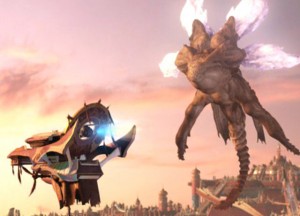
But this is not why the Summoners are so revered. When the Calm ends and Sin comes to terrorize Spira again, they are the only ones who can defeat him and bring another Calm. A Summoner wishing to challenge Sin has to undertake a pilgrimage through all the temples of Spira to gain the support of all the Aeons. Once they accomplish that, their journey lays into the ruined city of Zanarkand to obtain the Final Aeon and be able to defeat Sin and gain the title of Grand Summoner.
Sounds easy, doesn’t it? Just a sight-seeing journey through the beautiful land of Spira with an epic battle at the end. That’s what Tidus thinks at first too… Only there is a reason why the title of Grand Summoner can only be awarded posthumously. Only the Final Aeon can defeat Sin, but it kills the Summoner in the process as well.
This little revelation shines a whole new light on Yuna’s character. She knows that her journey is one way only. She is well aware that death awaits her at the end. But she chooses to step on this path and see it through no matter what. Not for glory, not for fame, not for respect, but for the people of Spira. Yuna chooses to sacrifice her own life to grant her world another 10-20 years of Calm. Even when she is declared a heretic and excommunicated by the Temples, when she loses the support of the people she wants to save, she still presses on…
I fight for Spira. The people long for the Calm. I can give it to them. It’s all I can give. Defeating Sin, ending pain… this I can do.
Yuna from Final Fantasy X.
And she never feels sorry for herself or cries about her life. In fact, she goes out of her way to help others and cheer her companions up when they feel down, even though for her this journey is one big farewell to the world she loves so much.
For me, Yuna is the perfect example of inner strength. She might not carry a kickass sword or unleash waves of fire upon enemies, but she never breaks, no matter how hard her life gets. She is also the perfect example of a female character who has agency. She doesn’t just let the current carry her through the story, she swims with it (and even against it in the end) instead. She makes her own decisions and chooses her own path.
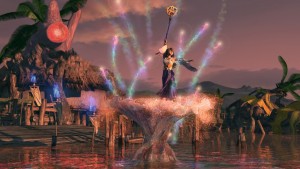
I would really like to see more characters like Yuna in books and movies, but for some reason her type is extremely rare.




